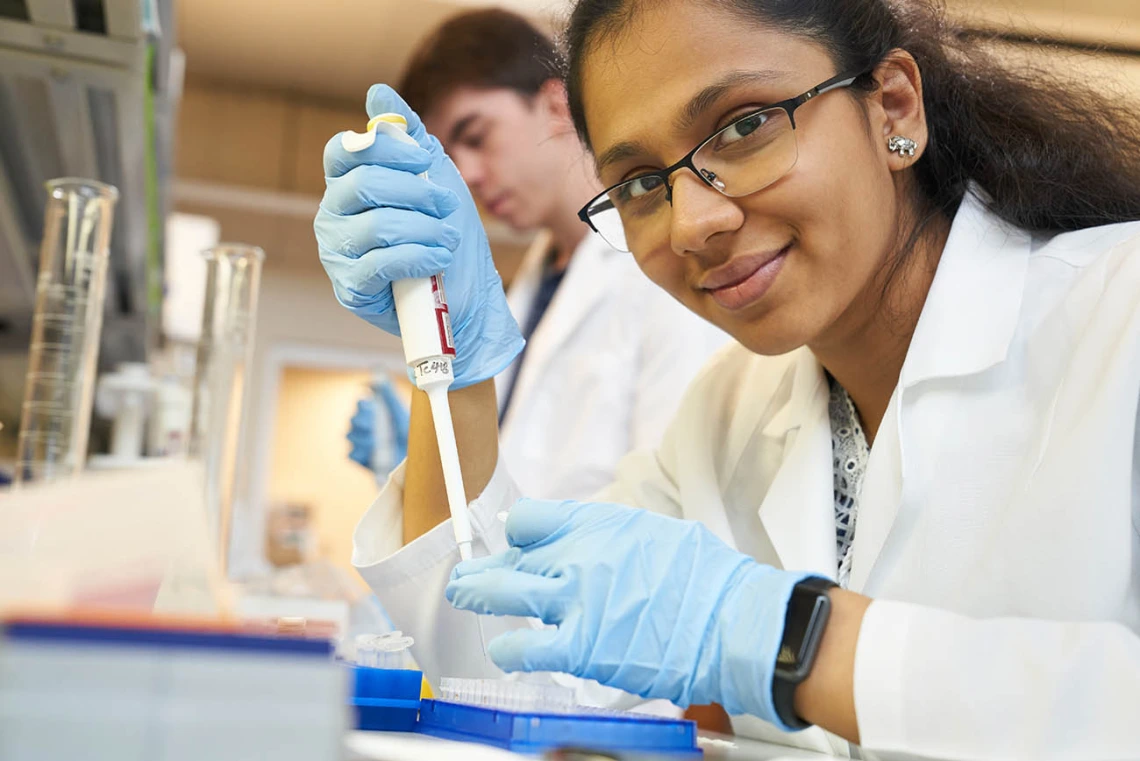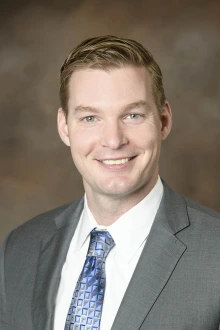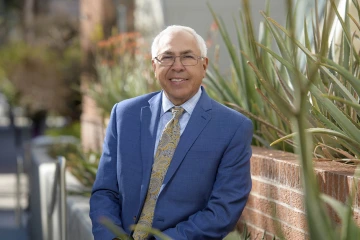All of Us Research Program Releases 100,000 Whole Genome Sequences to Support Research Into Hundreds of Diseases
All of Us University of Arizona-Banner leads in participant enrollment and researcher support, sharing health information to accelerate medical research.

The All of Us Research Program has made nearly 100,000 highly diverse whole genome sequences available to researchers. About 50% of the genomes are from individuals who identify with racial or ethnic groups that historically have been underrepresented in research.
The All of Us Research Program hit a new milestone when the first set of DNA information from participants was made available to researchers in the All of Us Researcher Workbench, including about 35 Arizona researchers who are using the data to study disease.

Jason Karnes, PharmD, PhD, is director of scientific programs for All of Us UArizona-Banner and associate professor of pharmacy practice and science in the University of Arizona R. Ken Coit College of Pharmacy
"This release of nearly 100,000 whole genomes and 165,000 genome-wide arrays opens the flood gates for discovery,” said Jason Karnes, PharmD, PhD, director of scientific programs for All of Us UArizona-Banner and associate professor of pharmacy practice and science in the University of Arizona R. Ken Coit College of Pharmacy. “The depth of genomic data in these diverse participants, coupled with electronic health records and social determinants of health data, enables researchers to launch a wide variety of new studies in the All of Us Researcher Workbench.
“Such studies include the discovery of new genetic variants, genome- and phenome-wide association studies to determine the link between genetics and various diseases, research into polygenic risk scores that may be used to predict disease with genetics, and studies of ancestral and genetic influences versus social and environmental influences and how those impact health,” Dr. Karnes added.
More than 1,500 research projects including about 50 in Arizona, are underway in the Workbench. The projects use data from All of Us participants to study things like socioeconomic implications on cancer outcomes, race and ethnicity factors in cardiovascular disease, and sociocultural influences on outcomes of COVID-19. One of the studies, led by Dr. Karnes, is using self-reported health information and electronic health records to investigate the relationships of race and ethnicity to a multitude of diseases. The addition of genome sequencing gives the research team a richer dataset that will allow them to develop a more complete picture of individual health determinants. To protect participants’ privacy, the program has removed all direct identifiers from the data and upholds strict requirements for researchers seeking access.

Francisco Moreno, MD, is principal investigator for All of Us UArizona-Banner, professor of psychiatry at the UArizona College of Medicine – Tucson, and associate vice president for the equity, diversity and inclusion for UArizona Health Sciences.
The goal of All of Us is to enroll 1 million or more people nationwide, including 100,000 from the UArizona-Banner consortium, to build one of the largest and most diverse databases that can help accelerate medical research.
“Until now, over 90% of participants from large genomics studies have been of European descent. The lack of diversity in research has hindered scientific discovery,” said Josh Denny, MD, chief executive officer of the All of Us Research Program. “All of Us participants are leading the way toward more equitable representation in medical research through their involvement. And this is just the beginning. Over time, as we expand our data and add new tools, this dataset will become an indispensable resource for health research.”
The genomic data is available via a cloud-based platform, the All of Us Researcher Workbench. Whole genome sequencing provides information about almost all of an individual’s genetic makeup, while genotyping arrays, the more commonly used genetic testing approach, capture a specific subset of the genome.

Josh Denny, MD, is chief executive officer of the All of Us Research Program.
The Researcher Workbench is made possible through the generous contributions of All of Us participants. Beyond making genomic data available for research, All of Us participants have the opportunity to receive personal DNA results at no cost to them. So far, the program has offered genetic ancestry and trait results to more than 100,000 participants. Plans are underway to begin to share health-related DNA results on hereditary disease risk and medication-gene interactions later this year.
To learn more or enroll, visit AllofUsAZ.org/arizona or call 877-268-2684.
The University of Arizona-Banner Health Program is supported under the National Institutes of Health All of Us Research Program funding award OT2OD026549 with previous awards UG3OD023171-01 and UG3OD023171-01S1 and the CEAL funding award OT2-HL156812.
“All of Us” and the All of Us logo are registered service marks of the U.S. Department of Health & Human Services (HHS).
Contact
Carrie Whitten Simmons
602-326-9048
carriesimmons@arizona.edu

